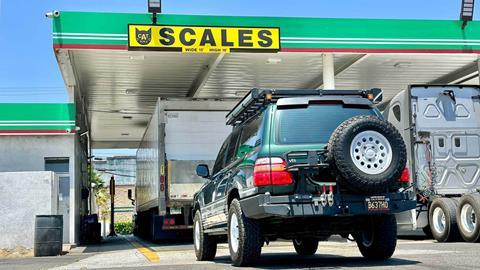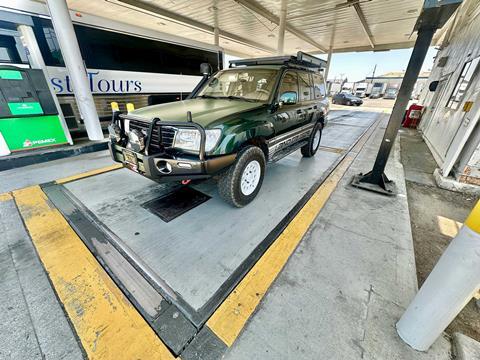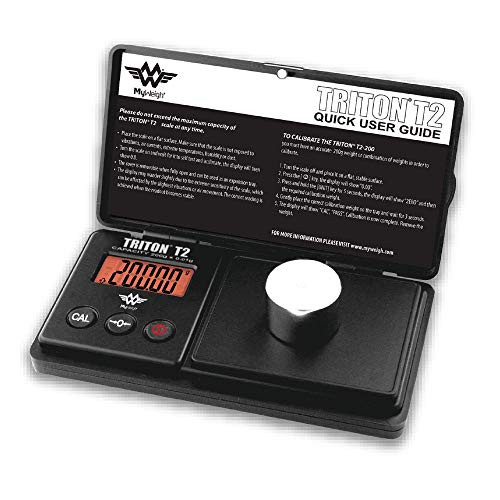Whether you’re preparing for a military PCS move, selling your vehicle, or simply curious about its exact curb weight, finding a reliable place to get an official measurement is the critical first step. The process can seem confusing, especially with terms like “certified weight ticket” and “DITY move” creating uncertainty. You need to know not just where to weigh my car, but how to do it correctly to get the results you need.
The most reliable places to weigh your car are certified public scales, with CAT Scales at truck stops being the most common and accessible option. You can also use online locators and specialized trucker apps to find nearby weigh stations that provide the certified weight tickets often required for official purposes.
This guide provides a comprehensive, data-driven walkthrough of exactly where to weigh your car and the simple steps to get an accurate, certified result. We’ll break down the best locations, the tools you can use to find them, and the precise process for getting the weight tickets you need for everything from a DITY move to simple peace of mind.
Key Facts
- Standard Cost: A certified weight ticket from a public weigh station, such as a CAT Scale, typically costs around $10 per weigh-in.
- Top-Tier Option: CAT Scales are a widely recognized and trusted network for obtaining reliable, certified weights for all types of vehicles, not just commercial trucks.
- Military Move Mandate: For a military DITY or PCS move, you are required to obtain two separate certified weight tickets—one for your vehicle when it is empty and another when it is fully loaded.
- Modern Tech Solutions: Mobile applications designed for truckers, such as Trucker Path and DAT One, offer real-time status updates on whether nearby public scales are open or closed, which is a valuable tool for personal vehicle owners as well.
- Dedicated Locator Tools: Specific websites like Public Scale Locator exist solely to help users find certified public scales, making it easier to locate a facility for official weighing needs.
Why Do You Need to Weigh Your Car? Understanding the First Step
To weigh your car, first identify your need, such as for a “Do It Yourself” (DITY) move which requires certified weight tickets, or for personal knowledge, as this determines the best method. Are you preparing for a DITY move or just trying to satisfy your curiosity? Knowing your ‘why’ is the first step. Understanding your primary motivation is crucial because it dictates the type of scale and documentation you’ll need.
Here are the most common reasons people search for where to weigh my car:
- Military DITY/PCS Moves: This is one of the most frequent reasons. To be properly reimbursed for a Personally Procured Move (PPM), you must provide certified weight tickets showing your vehicle’s empty and full weight.
- Selling Your Vehicle: Some buyers, particularly for custom or modified vehicles, may want to know the exact weight. Providing a certified weight ticket can add a layer of transparency and trust to the transaction.
- Towing and Hauling: If you plan to tow a trailer or RV, knowing your vehicle’s precise curb weight is essential for ensuring you stay within the Gross Combined Weight Rating (GCWR) for safety.
- Vehicle Modifications: After adding heavy equipment like winches, roof racks, or custom bumpers, weighing your car helps you understand the impact on its performance, suspension, and fuel economy.
- Personal Curiosity: Sometimes, you just want to know. Learning the exact weight of your vehicle can be interesting and useful information for any owner.
Where to Find a Public Scale: Your Top 3 Options
The best places to weigh your car are certified public scales like CAT Scales found at truck stops, locations found via a Public Scale Locator website, and weigh stations accessible to the public. These options provide the accuracy and official documentation often required. Knowing where to weigh my car is simple when you know the main resources available to everyone. Pro Tip: Look for the distinctive black and gold CAT Scale sign at major truck stops—it’s a sign of a reliable, certified weight.

Here are the top three ways to find a certified scale near you:
- CAT Scales: This is the most widely recognized network of certified public scales in the country, commonly located at large truck stops and travel centers. They are the go-to for both commercial truckers and individuals.
- Public Scale Locators: Several websites are dedicated to helping you find certified scales. These online directories are invaluable for planning a DITY move or finding a scale in an unfamiliar area.
- Trucker Apps: Leveraging the technology built for professional drivers can give you a significant advantage, often providing real-time information that websites can’t.
1. CAT Scales: The Industry Standard for Certified Weights
Yes, you can weigh your car on a CAT Scale. They are a widely recognized network of certified public scales known for providing reliable and accurate weights for all vehicle types. While you might associate them with massive semi-trucks, CAT Scales are perfectly suited and available for personal cars, trucks, and moving vans. Quick Fact: CAT Scales aren’t just for 80,000-pound trucks; they provide the same certified accuracy for your personal car or moving truck.
Benefits of using a CAT Scale include:
- Certified Accuracy: CAT Scales guarantee an accurate weight, which is essential for official documentation like military move paperwork.
- Widespread Availability: With a vast network across the country, you’re likely to find a CAT Scale on any major highway or travel route.
- Ease of Use: The process is straightforward, and attendants are accustomed to weighing all kinds of vehicles.
- Online Locator: You can easily find the nearest location using the official CAT Scale locator tool on their website,
catscale.com, by searching with your postal code or city.
2. Public Scale Locators & Government Listings
Websites like Public Scale Locator and some state DMV or DOT listings provide directories of certified public scales, allowing you to search by location for options beyond truck stops. These resources are excellent for finding privately-owned facilities or smaller scale houses that might be closer or more convenient for you.
Here are some key resources to check:
- Public Scale Locator Websites: As noted in data from
publicscaleslocator.com, these sites are specifically designed for individuals needing to find scales for personal moves. They allow you to filter by location type, such as fuel stations or commercial rental facilities. - State Government Websites: Your state’s Department of Transportation (DOT) or Department of Motor Vehicles (DMV) may maintain a list of public scales. These are often located at official weigh stations that also serve the public.
- Moving Company Resources: Companies like U-Pack and Penske often provide their own public scale locators to assist customers who are moving.
3. Using Trucker Apps to Find a Scale Near You
Mobile apps for truckers, such as Trucker Path and DAT One, can help you find public scales and provide real-time updates on their operational status, even for personal vehicle use. This is a modern, tech-savvy approach to finding where to weigh my car. Pro Tip: While designed for truckers, apps like Trucker Path can give you real-time updates on whether a nearby scale is open or closed, saving you a wasted trip.
Here’s how these apps can help you:
| App Name | Key Feature | Best For… |
|---|---|---|
| Trucker Path | Real-time community updates | Checking if a scale is open/closed |
| DAT One | GPS feature for “near me” searches | Route planning that includes a weigh-in |
| Trucker Guide | Comprehensive directory | Finding all possible options in an area |
These apps leverage GPS and community feedback to provide the most current information, making them a powerful tool for anyone on the road needing an accurate weight.
Step-by-Step Guide: How to Weigh Your Car Correctly
To weigh your car, locate a certified scale, drive onto the platform following instructions, wait for the weight to register, and obtain a certified weight ticket with the date, time, and weight. The entire procedure is designed to be quick and efficient. Don’t worry, the process is simpler than it sounds. Let’s walk through it together.
Following these steps will ensure you get an accurate reading and the proper documentation for your needs.
Step 1: Prepare Your Vehicle for an Accurate Weight
For a DITY move, you need two weights: an “empty weight” with a full tank of gas and minimal items, and a “full weight” once the car is fully loaded for your move. Proper preparation is the key to an accurate and official weight, especially for military moves where reimbursement depends on it.
- For an Empty Weight: Your vehicle should be weighed with a full tank of fuel but otherwise empty. This means removing all luggage, passengers (except the driver), and non-essential items that won’t be with the vehicle for the entire trip.
- For a Full Weight: Load your car exactly as it will be for your move. Include all boxes, luggage, passengers, and items you are transporting. The goal is to capture the total weight of the vehicle and its contents at the start of your journey.
Step 2: At the Scale – The Weighing Process
At the scale, simply drive onto the platform as directed, stop your vehicle completely, and wait for the attendant or automated system to record the weight. The on-site experience is designed to be straightforward, even for first-timers.
- Follow Directions: Pull up to the scale and follow any signs or instructions from the scale attendant. You may need to use an intercom to speak with them.
- Position Your Vehicle: Drive slowly and carefully onto the scale platform. Ensure all wheels of your vehicle are fully on the platform.
- Stop and Wait: Once in position, put your vehicle in park and wait for the weight to be recorded. The attendant will let you know when the process is complete.
- Drive Off Carefully: After you get the signal, drive off the scale.
Step 3: Obtain and Verify Your Certified Weight Ticket
After weighing, you will receive a certified weight ticket. For official purposes like a DITY move, ensure this document includes the correct date, time, and weight reading. This ticket is your official proof and is the entire reason for the weigh-in.
For military DITY moves, the certified weight ticket is non-negotiable. It is the official document you will submit for reimbursement, so it must be accurate and complete.
Make sure your certified ticket includes the following information:
- The name and location of the weigh station
- The date and time of the weigh-in
- Your name and vehicle identification
- The official weight reading
- A signature or stamp from the certified weighmaster


To ensure your belongings are secure and don’t shift during transit, which could slightly affect weight distribution, using high-quality tie-down straps and moving blankets is a smart move.
FAQs About Weighing Your Car
Here are answers to some of the most common questions people have about the process of weighing a vehicle.
How much do weigh stations charge to weigh a car?
Weight tickets at a certified public scale or weigh station typically cost around $10 each. If you require a re-weigh for any reason, it is often available at a significantly reduced cost, but be sure to ask the attendant for their specific policy.
Can I weigh my personal vehicle on a CAT Scale?
Yes, you can absolutely weigh your personal car at a CAT Scale. They are certified public scales available for any vehicle needing an accurate weight reading. They are designed to accommodate everything from a small passenger car to a fully loaded commercial truck.
Where can I weigh my car for free?
While some scrap yards or recycling centers may have large scales and might weigh your vehicle for free, they typically cannot provide a certified weight ticket. Obtaining a certified weight ticket, which is often required for official purposes, typically involves a small fee of around $10 at a public weigh station or CAT Scale.
What is a certified weight ticket?
A certified weight ticket is an official document from a licensed public scale that provides proof of a vehicle’s weight at a specific date and time. It is crucial for processes like military DITY moves, as it is signed by a weighmaster and serves as legal verification of the weight.
Do I need an empty and a full weight ticket for a military move?
Yes, for a military DITY or PCS move, you must obtain two separate certified weight tickets: one when your vehicle is empty (with a full tank of gas) and another when it is fully loaded for the move. The difference between these two weights determines the reimbursement amount for your household goods.
Final Summary: Finding the Right Scale is Simple
Finding where to weigh my car is a straightforward process once you know the right tools and locations. Whether for a military move, a private sale, or personal knowledge, certified public scales provide the accuracy and documentation you need. From the universally trusted CAT Scales to online locators and handy trucker apps, you have multiple reliable options at your fingertips. Now that you have the map and the method, you’re ready to get an accurate, certified weight for your vehicle with confidence!
To recap the most important points:
- CAT Scales are Your Best Bet: They are certified, accurate, widely available, and easy to use for any type of personal vehicle.
- Use Locator Tools: Websites like Public Scale Locator and apps like Trucker Path are powerful resources for finding a scale near you and checking its status in real-time.
- Preparation is Key for DITY Moves: Remember to get two separate certified tickets—one for your empty vehicle and one for it fully loaded—to ensure proper military reimbursement.
- The Ticket is Your Proof: Always verify that your certified weight ticket contains all the necessary information, including the date, time, weight, and an official signature or stamp.
Last update on 2025-10-24 / Affiliate links / Images from Amazon Product Advertising API













